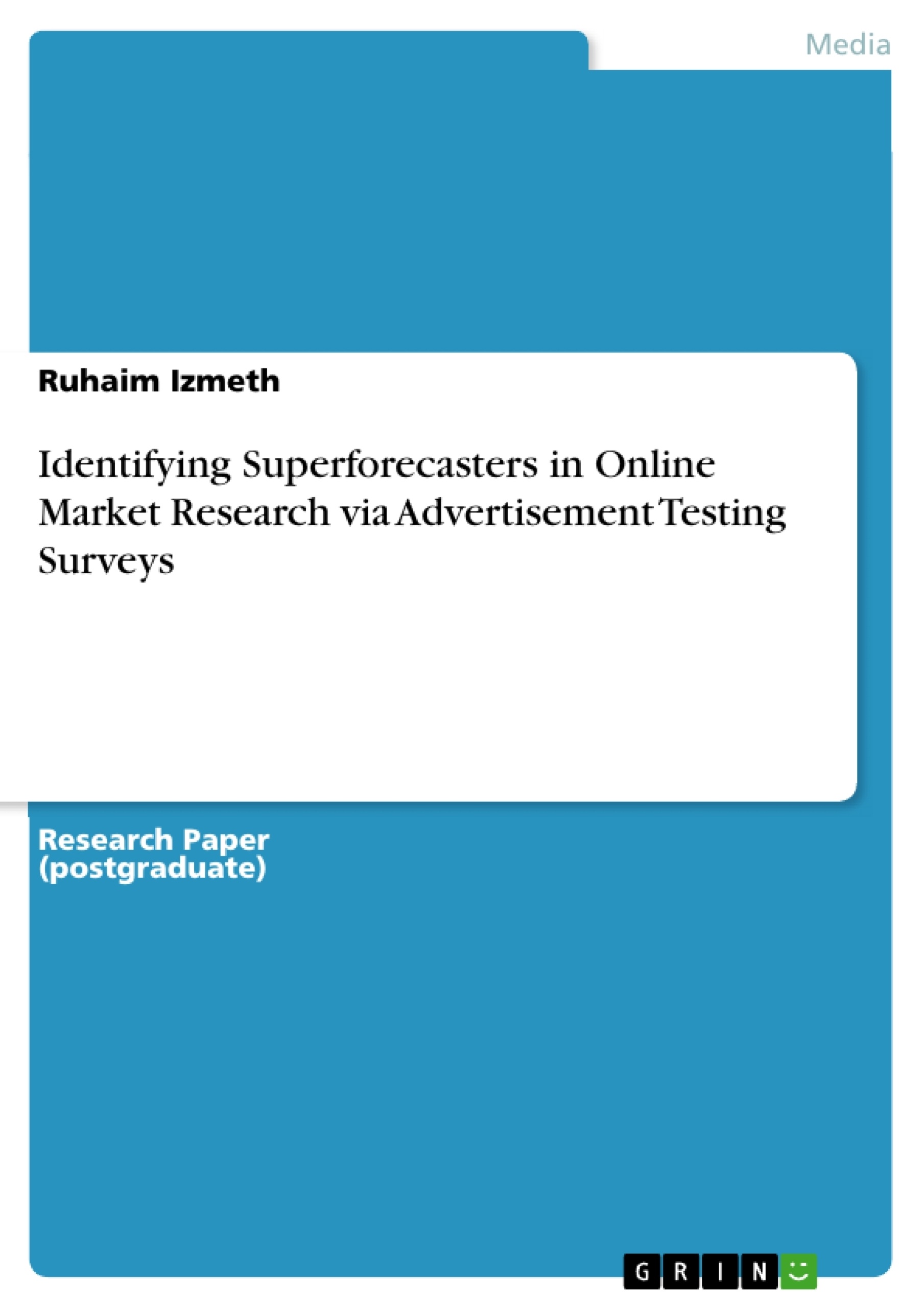This research is inspired by the result of the works of Professor Tetlock on prediction science in the geopolitical and economics domains. He suggests that some non-experts are better than experts in predicting the future. This research attempts to identify if a group of individuals with high prediction skill exists in the general public by testing on ad testing surveys.
Modern businesses spend billions of dollars on branding and advertising of their products. Ad testing is commonly used as a tool to gauge the success and effectiveness of such campaigns. A problem faced by ad testing surveys is that the main campaign has to be kept on hold until the survey data is collected. Usually, larger the sample size the longer the delay. If a smaller group of forecasters are able to predict the opinion of a larger sample, the delay faced in ad testing surveys could be minimized.
Data from a prediction survey collected from 659 subjects living in the UK who predicted the best ads from set of 16 ad-pairs, were analyzed in this research. The analysis found that few individuals were able to predict more successfully and with greater confidence than others. Nonetheless, more research in the same domain with greater vigor is needed to fortify the claim.
Inhaltsverzeichnis (Table of Contents)
- I. INTRODUCTION
- A. Study area
- B. Research Objective
- II. LITERATURE REVIEW
- A. Advertising Testing
- B. Innovation in online surveys
- C. Preference for online surveys
- D. Prediction Markets
- E. Gamification
- F. System 1 and System 2 thinking
- G. Lives based on predictions
- H. Are expert forecasts always correct?
- I. How do experts get away?
- J. Superforecasters
- III. METHODOLOGY
- A. Introduction
- B. Data Used
- C. Sample
Frequently Asked Questions
What is a "Superforecaster"?
A superforecaster is an individual with high prediction skills who can forecast future events more accurately than experts, often using systematic thinking.
How can superforecasters help in market research?
They can predict the opinions of a larger sample, allowing companies to reduce sample sizes and speed up ad testing surveys.
What is "Ad Testing"?
Ad testing is a process used by businesses to gauge the effectiveness of advertising campaigns before they are fully launched.
What are System 1 and System 2 thinking?
System 1 is fast and intuitive, while System 2 is slow and analytical. Superforecasters often rely more on the analytical System 2 thinking.
What were the findings of the prediction survey?
The research found that a few individuals in the UK sample could predict successful ads with significantly greater confidence and accuracy than others.
- Quote paper
- Ruhaim Izmeth (Author), 2016, Identifying Superforecasters in Online Market Research via Advertisement Testing Surveys, Munich, GRIN Verlag, https://www.grin.com/document/367922



